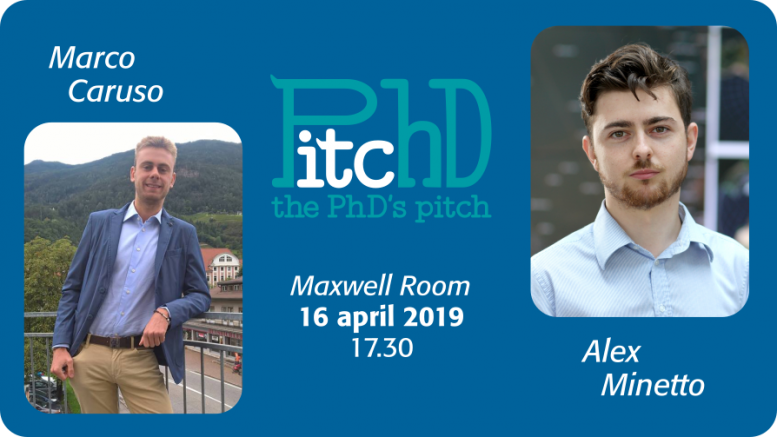16 April 2019 – 17.30
Politecnico di Torino – Maxwell Room
Here’s the second PitchD – the PhD’s pitch. Our PhD IEEE Student Members explain to students, colleagues and professors their research. For the second event, two PhD student with a biomedical and a telecommunications background will show insight into their work. Join us to listen to their PitchD.
Measuring human movement using magneto-inertial sensors: is it possible to assess our motor ability outside the clinic?
Mr. Marco Caruso
Dept. of Electronics and Telecommunications (DET), Politecnico di Torino
Dept. of Biomedical Sciences, Università di Sassari.
During my presentation I will focus on the interesting theme of human movement analysis by means of wearable magneto-inertial sensors (IMU).
The aim of my research activity is to design and validate advanced algorithms of signal processing (also known as sensor fusion algorithms, e.g. Kalman filter and complementary filter) to estimate the joint kinematics starting from the inertial and magnetic data collected by IMUs.
At the end of my presentation, I will introduce the main projects in which our research group is involved. In particular, we are focusing on a tele-rehabilitation project and European research in the Horizon 2020 framework to assess the digital mobility of population with and without motor impairments in real-world settings. Master thesis proposals and open research themes will be also presented.
Navigating a Ph.D. – Squeezing the last drop of information from the Global Navigation Satellite Systems
Mr. Alex Minetto
Dept. of Electronics and Telecommunications (DET), Politecnico di Torino
To date, I have spent almost three years involved in a challenging topic in the area of satellite navigation systems. A long journey of research, training and dissemination activities during which time runs out as your effort increases.
It has been a great opportunity to explore and investigate a whole new topic for our research group. It began trying first to capture all the good results of the state of the art and then to align my research with the methodology and trends of our community, until some humble results emerged. The national and international space agencies are going to fill the available orbits with a large number of satellites, but at ground segment, we are still in difficulty in perfectly exploiting what comes from satellites already in orbit. My work in the context of cooperative positioning is investigating theory and implementation aspects of the positioning problem using a network of receivers treated as a sensor network, thus collecting and processing multi-agent data to improve localization performances.
It is not just a question of exceptional results in your topic (which hardly are there in only three years), but it is also the opportunity to learn how the world of research works and how your mind can be shaped to be more inclined to research itself.


Be the first to comment on "Here the second PitchD!"